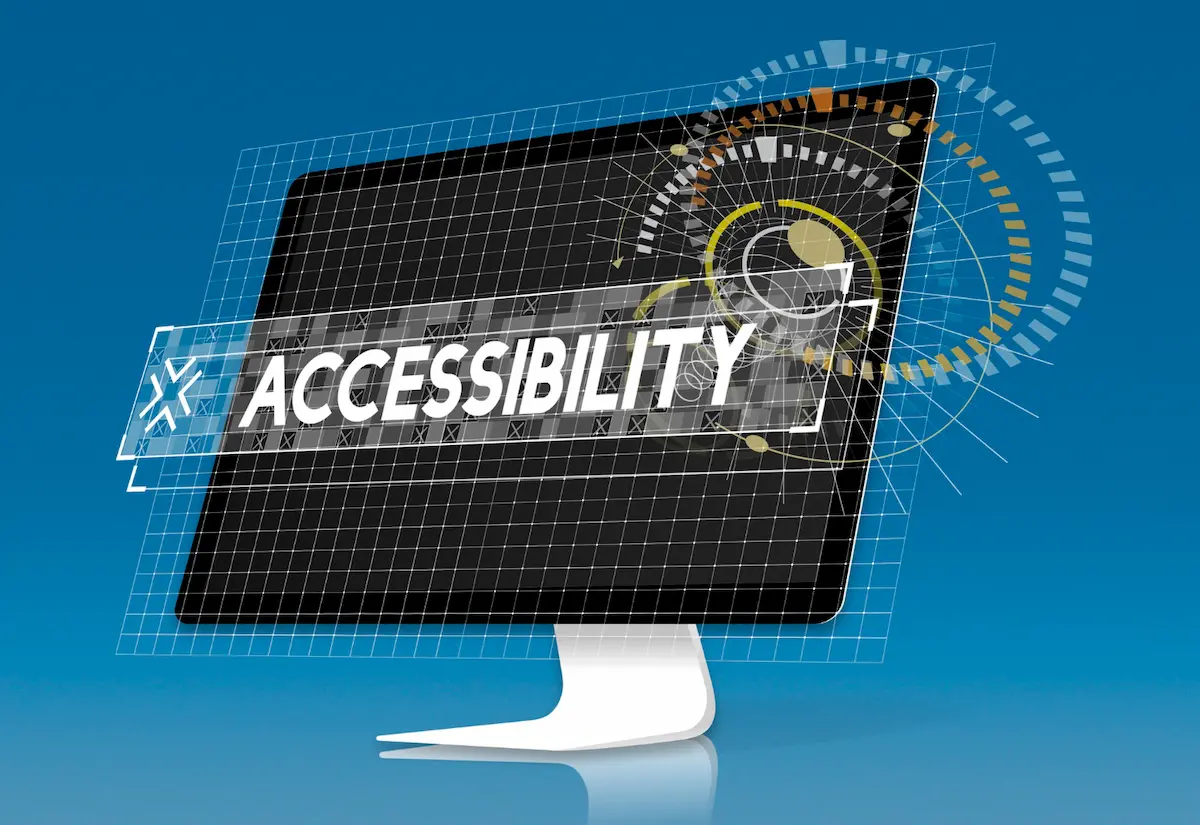Cybersecurity has become a major concern for marketers worldwide. In today’s interconnected digital ecosystem, data moves freely, and consumer interactions occur at the speed of light. Therefore, today’s marketing organizations must be able to secure digital assets, protect customer information, maintain trust, and meet regulatory requirements.
Because of the growth of social media, digital marketing channels, and personalized advertising, there are now more opportunities than ever to contact and interact with consumers. However, these prospects also carry a huge risk. The core pillars around which marketing strategies are constructed are at risk from cyber threats, including malware, phishing assaults, and data breaches.
As marketers leverage big data and analytics to gain insights into customer behaviour and preferences, navigating the complex cybersecurity landscape is a prerequisite. A security breach can cause irreversible damage to a brand’s reputation and undermine consumer confidence, in addition to causing operational hiccups and financial losses.
Customers are becoming increasingly concerned about how companies collect, store, and use their data. Companies that prioritize cyber security not only protect themselves from legal risks. They also establish themselves as trusted stewards of customer information.
Cybersecurity and Cyber Threats in Digital Marketing
The frightening pace and sophistication with which cyber threats continue to grow makes it difficult for organizations to keep up. These threats include direct attacks on systems and networks. They also include social engineering techniques that exploit human weaknesses.
In addition, the complexity of the cybersecurity environment is compounded by the proliferation of Internet of Things (IoT) devices, which introduce new avenues for potential security breaches. As organizations embrace cloud computing and digital transformation, the attack surface expands. Strong defenses and proactive monitoring are required to successfully mitigate risk.
Customer Trust and Brand Reputation Impact of Cybersecurity
A cybersecurity event can have a devastating impact on consumer confidence and corporate reputation in today’s hyper-connected world, where information travels quickly through social media and internet channels.
Customers are becoming increasingly vigilant about how companies manage their data. Any perceived negligence can lead to negative publicity and a damaged reputation. Companies that prioritize cyber security not only protect sensitive data but also demonstrate that they are committed to protecting their customers’ interests and building deeper relationships based on trust and honesty.
Conversely, companies that ignore strict security protocols risk permanent damage to their brand reputation and competitive position.
Challenges of the Regulatory Landscape and Compliance
The regulatory environment for protecting personal data has become more complex and globalized. Compliance requirements are shaped by international frameworks like Privacy Shield, new regulatory standards like ISO, and local regulations like CCPA and GDPR.
Marketers must dynamically understand the legal intricacies to navigate these many restrictions and adjust strategy as necessary. Furthermore, as these regulations are dynamic, there is a need for continuous review and adaptation to ensure that marketing strategies are compliant while encouraging innovation and expansion.
Companies that manage these issues effectively not only reduce legal risk. They also establish themselves as leaders in ethical data management.
Integration of Cybersecurity into Marketing Strategy
To deal with these issues effectively, marketers need to include cybersecurity issues in their strategic planning processes:
- Risk Assessment and Mitigation: Routine risk assessments identify any weaknesses in marketing systems and procedures. This can be an assessment of the security of customer data sets, third-party connectors, and marketing automation tools.
- Education and Training: Ensure that cybersecurity best practices and standards are in place for every member of the marketing team. This includes training on how to encrypt data, manage passwords, and recognize phishing scams.
- Collaboration with IT and Cybersecurity Teams: Implement strong security measures for all marketing processes in collaboration with IT and cybersecurity departments. This cooperation should include crisis management and incident response planning.
- Vendor Management: Screening and management of third-party vendors and marketing technology providers to ensure that they adhere to high standards of cybersecurity. This includes reviewing their security protocols and how the data gets handled.
Building Trust through Transparency and Accountability
Openness and accountability are critical at a time when customer trust is eroding. Marketers can build trust:
- Communicating Security Measures: Be open and honest about the security measures in place to protect customer information. Terms of service agreements, privacy policies, and proactive messaging about data security procedures can all help.
- Swift and Honest Communication: In the event of a security issue or data breach, inform affected consumers quickly and easily. Trust can be maintained to a large extent by providing consumers with detailed information about what has happened, what is being done to mitigate the situation, and how they can protect themselves.
- Empowering Customers: Giving consumers control over their data by providing options to manage their consent and preferences. A commitment to privacy is demonstrated by honouring their opt-out requests and respecting their privacy choices.
How to Use Technology to Improve Cybersecurity
Technological developments, such as machine learning (ML) and artificial intelligence (AI), are essential to the improvement of marketers’ cybersecurity skills. Large volumes of data can be analyzed in real time by AI and ML algorithms to detect anomalies and potential threats. This enables proactive threat mitigation before things get out of hand. These technologies also free up human resources to focus on critical projects and innovative ventures by automating repetitive security tasks.
Blockchain is a promising solution for securing data transfers and marketing activities due to its decentralized and immutable ledger mechanism. Marketers can build stakeholder and customer trust by using blockchain technology to ensure data transactions are transparent and honest.
In addition, encryption and biometric authentication technologies provide additional layers of security. These technologies protect customers’ private data on digital platforms. These developments strengthen cybersecurity defences and give marketers the confidence to use personalized marketing methods with the knowledge that consumer data is safe.
Marketers must stay abreast of the latest developments in cybersecurity solutions and best practices to take full advantage of these technological improvements. By proactively addressing cyber risks and incorporating the latest technologies into their security frameworks, marketers can maintain the trust and confidence of their audiences in an increasingly digital marketplace.
Cybersecurity Measures in Marketing Plans.
In conclusion, the inclusion of strong cybersecurity measures in marketing plans is not just a defensive measure but a proactive way to maintain a competitive advantage and build customer trust. By prioritizing cybersecurity, marketers reinforce their brand’s reputation as a trusted guardian of consumer data while also protecting their organizations from costly breaches and legal penalties.
By embracing cybersecurity as a strategic priority, marketers can innovate with confidence, knowing they are protecting both consumer interests and business integrity in an increasingly digital and connected world.
The importance of cybersecurity in marketing will only grow as technology advances and cyber threats become more sophisticated, highlighting the importance of ensuring consumers and organizations have a secure and successful future.
Cybersecurity Risks in the Healthcare Industry
The healthcare sector has recently become a major target for cyber-attacks. This is very worrying as these cyber attacks account for an alarming 70% of all major data security incidents.
Healthcare organizations have a lot of sensitive data and often have weak cybersecurity, making them an easy target for cyberattacks. In the last two years, 45% of healthcare organizations have had a data breach.
We discuss the important statistics, as well as the dangers and consequences of cybersecurity. We also discuss ways organizations can prevent cyberattacks.
The Extent of Cyber Threats in Healthcare
First, we’ll look at some general statistics. These statistics will show you how data breaches and cyber-attacks have affected the healthcare sector, and how cybersecurity has been impacted.
Notable incidents:
There have been several major cyberattacks against healthcare companies. Healthcare is an industry that is very important to the economy. It is more sensitive than other industries. For example, a cyber attack on Marriott International affected 500 million customers.
Cyber-attacks are more dangerous for the healthcare industry than other industries because healthcare organizations have access to a lot of sensitive data. This can lead to more problems.
Hospitals and healthcare companies have a lot of your personal information, which hackers often target.
Typically, hackers steal your personal information, such as your name, address, phone number, and social security number. They can also use this information to demand money.
Hackers can also use your health information, like details about your insurance and medical background, to commit scams.
The impact of cyberattacks on healthcare
Cyber-attacks mostly harm innocent customers, employees, and healthcare organizations.
There are three kinds of these effects:
- Financial,
- Organizational, and
- Personal.
How cyberattacks affect your finances
Cyber-attacks cost companies a lot of money. A survey by HIMSS found that 17% of cybersecurity professionals in healthcare say that cyberattacks cause financial loss. This can include wire fraud, ransom, or business email compromise.
Healthcare companies usually pay money to people who have suffered. Companies that mishandle customer data could have to pay big fines under data protection laws.
Organizational Impact
Cyber attacks can hurt healthcare companies, too. These companies create a sense of safety and protection. If they don’t protect their reputation, their customers might stop trusting them.
This can lead to their customers losing trust in their organization and leaving. These organizations know the risks; 50% of healthcare cybersecurity professionals are unsure that they could recover from a cyberattack if one happened.
Cyberattacks can also lead to lost productivity. A global survey of the healthcare industry found that 26% of respondents said that cyber-attacks had disrupted their IT operations, while 32% said that attacks had disrupted their business operations.
Hospitals could face ransomware or data leaks, which are attacks that could force them to close or prevent patients from using medical technology. This has two important effects. First, it affects the company’s money. Second, it affects a person’s health.
Personal Impact
Attacks on healthcare systems through the internet can cause great harm. These attacks can hurt people and their finances, and can even harm their physical and mental well-being. If a hospital closes or becomes very slow, it may have to cancel appointments. This could be bad for the patients’ health.
Many people who have healthcare data breaches are affected by medical identity theft. It costs patients an average of $13,500 to resolve these problems. People who have experienced problems caused by cybercrime, like identity theft and financial and tax fraud, can struggle.
Who is sharing someone’s information without their permission?
In most data breaches in the healthcare industry, the information that is stolen usually belongs to patients. In most data breaches, personal information from public data is exposed, including in healthcare.
The biggest healthcare data breaches involve patient information. These breaches affected more than 175.1 million people. However, this is only a small part of the total number of files that have been leaked.
Companies must tell their customers when their information is compromised, but they often don’t share how this affects other systems. This lack of full transparency makes it difficult to know exactly how much damage these breaches can do to your company.
Cyber attacks are damaging
Healthcare data breaches will affect 49.6 million people in the US in 2022. Hacking is one of the most harmful types of data breaches for healthcare companies.
Costs
If online data breaches can have such a negative effect, how much money could they cost us?
Healthcare data is very sensitive. If it’s stolen, the thief could cause a lot of damage.
That’s right. The average cost of a healthcare data breach is $10.10 million. Healthcare is second, with $5.97 million spent per breach.
The financial and pharmaceutical sectors come in third and fourth, with $5.01 million and $4.99 million spent per breach, respectively. No one wants to be the one at the top of that list.
In 2021, healthcare data breaches will cost $9.23 million, which is 9.4% more than in 2020. The latest data shows that the cost per breach increased the most in this industry in 2022. The research industry had the second-highest increase, with a 7.8% rise.
If a company doesn’t handle customer data properly, it could face government and data protection laws. Under GDPR, companies can be fined up to €20 million (4% of a company’s annual turnover).
Medical Data Is Valuable
Once hackers get their hands on your healthcare customers’ data, they can sell it for a song on the dark web.
Medical records contain a lot of information, and it is not possible to change this information. This includes information about a person, such as their medical history, how they behave, details about them (like their age and social security number), their contact information, and where they live.
You may cancel a credit card; however, once information is on your medical records, you cannot change the information. This information can leave you vulnerable to cybercrime for years.
Hackers target medical records because they are very valuable.










5 Responses